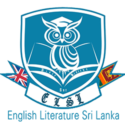Unveiling the Flaws - The Absurd Marking Scheme in Sri Lanka's G.C.E O/L English Literature Exam
Introduction
Education systems play a crucial role in nurturing critical thinking and encouraging students to engage with various perspectives. However, the recently issued marking scheme by the Department of Examinations in Sri Lanka for the G.C.E. O/L examination’s Appreciation of English Literary Texts subject raises serious concerns. This article aims to expose and condemn the flawed marking scheme, particularly in the context of evaluating context-based answers in English literature.
The Problem at Hand
One of the problematic aspects of the marking scheme pertains to the evaluation of context-based answers. According to the guidelines, students are expected to provide answers based solely on inference. Regardless of the guidelines given in the marking scheme, it continues to provide literal answers that do not apply to the definition of “inference”.
The Specific Example: Anton Chekhov’s “Bear”
To illustrate the absurdity of the marking scheme, let us focus on the play “Bear” by Anton Chekhov and the specific context provided for examination. The extract states, “I have locked myself in, and will be true to you till the grave, and you… aren’t you ashamed, you bad child?” (G.C.E. O/L 2021)
The extract portrays Popova, a land-owning widow, mourning for her deceased husband, Nicolai Mihailovitch. However, the marking scheme disregards crucial information that the audience is already aware of at this point. We learn that Popova’s mourning is a façade to shirk social responsibilities, and by punishing herself, she attempts to avenge herself for her husband’s infidelity. Moreover, the audience is also informed that she has been mourning for an entire year.
The Absurdity of the Marking Scheme
Despite this contextual knowledge, the provided marking scheme offers a limited and narrow range of expected answers, failing to consider the complexities and nuances of the character and the broader themes explored in the drama. The suggested answers primarily revolve around social expectations, commitment to norms, determination, mourning, and bereavement. The final answer provided in the marking scheme is “challenging and the critical of the behavior” (In order to stay on topic, we will not focus on the grammar error.)
Critical Evaluation and Condemnation
The marking scheme’s glaring oversight and refusal to acknowledge the fundamental elements of the literary work undermine the purpose of studying English literature. Literature, at its core, is meant to provoke thought, challenge conventions, and encourage readers to question societal norms. By restricting students to narrow interpretations based solely on the provided context, the marking scheme stifles critical thinking and disregards the rich tapestry of human experiences that literature seeks to explore.
Moreover, the limitations of the marking scheme showcase a problematic attempt to sanitise the interpretation of Literature. Literature reflects the complexities of human nature, and it is through exploring contradictory traits and actions that readers gain a deeper understanding of the characters and the societies they inhabit. By suppressing such interpretations, the marking scheme promotes a superficial understanding of the text, devoid of critical engagement and intellectual growth.
Conclusion
The flawed marking scheme issued by the Department of Examinations for the G.C.E. O/L English Literature Exam in Sri Lanka presents a serious concern for educators, students, and the future of literary analysis. By limiting interpretations to the given context and neglecting essential themes and character explorations, the marking scheme fails to fulfil its purpose of encouraging critical thinking and understanding of literature.
It is essential for educational authorities to revise the marking schemes with the help of those who know the subject, ensuring that they align with the fundamental principles of literary analysis and encouraging students to delve deeper into the complexities of the texts they study. By promoting a more inclusive and comprehensive approach to evaluating context-based answers, Sri Lanka’s education system can empower students to become critical thinkers and engaged participants in the world of literature and beyond.
